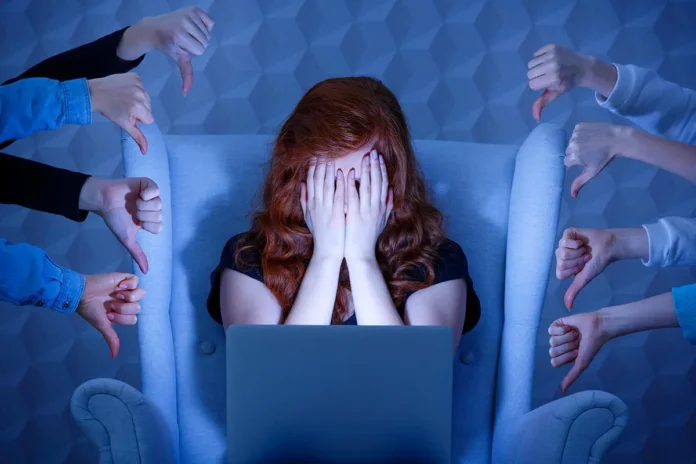Social media, a product of the technological revolution, has redefined communication and human connection, offering unprecedented access to information and individuals from all corners of the world. The magnanimous influence of social media, however, comes at a great cost – the dark side of social media. The concerns associated with social media use are of a daunting nature, including cyberbullying, addiction, and mental health risks. In this article, we will dissect the abyssal depths of the dark side of social media and the staggering risks it poses to our mental health.
The Insidious Nature of Cyberbullying
Undeniably, cyberbullying is one of the most serious risks associated with social media. This unsavory practice is defined as the use of technology, such as social media, to harass, intimidate, or humiliate an individual. The cruelty of cyberbullying knows no bounds, and it can manifest itself in various forms, including hurtful comments or images, rumors, or impersonation.
The consequences of cyberbullying for victims are far-reaching and catastrophic, ranging from depression and anxiety to the ultimate tragedy of suicide. It is incumbent upon individuals and social media companies alike to take swift and decisive action to prevent and address cyberbullying.
Social Media Addiction: The Modern-Day Epidemic
Another nefarious aspect of social media is addiction, which has become a modern-day epidemic. The excessive and compulsive use of social media characterizes social media addiction, causing disruptions in daily life and relationships.
The negative outcomes of social media addiction are alarming, from decreased productivity and increased stress to social isolation. Therefore, individuals must set limits on their social media use and seek professional assistance if they struggle with addiction.
The Mental Health Risks of Social Media Use
The effects of social media use on mental health are increasingly alarming, with a host of mental health risks linked to social media use, including depression, anxiety, and low self-esteem. Social media can contribute to these risks in several ways.
-
Social Comparison: The Poisonous Act of Comparison
One of the most significant ways social media causes mental health risks is by promoting social comparison. Individuals compare themselves to others based on their online profiles and posts, triggering feelings of inadequacy and low self-esteem.
-
FOMO: The Fear of Missing Out
Another mental health risk associated with social media use is FOMO, or the fear of missing out. Individuals experience anxiety and stress because of the fear of being left behind on the latest news and events by staying disconnected from social media.
-
Cyberstalking: The Stalking Menace of the Digital World
Cyberstalking is yet another serious mental health risk associated with social media. This menace entails using technology, such as social media, to stalk or harass someone online, leading to feelings of fear, anxiety, and physical safety concerns.
Preventing Social Media Risks
Preventing social media risks is a collective responsibility, necessitating a combination of individual and collective efforts. It is critical for individuals to establish limits on their social media use and seek professional help when faced with addiction or mental health issues.
Social media companies also have a responsibility to implement policies and procedures that prevent and address cyberbullying and other risks associated with social media use. Positive online behavior should be encouraged, and resources and support should be available to those who struggle with addiction or mental health issues.
The Way Forward: Prioritizing Mental Health and Well-Being
As we navigate the intricate and complex landscape of social media, we must prioritize our mental health and well-being. By being aware of the risks and taking proactive measures to prevent them, we can use social media in a safe and healthy way. Staying connected to others and enjoying the benefits of social media without compromising our mental health and well-being is possible.
It is essential to remember that social media is only one aspect of our lives. We should strive for balance and ensure that we are not relying too heavily on social media for our social connections and self-worth. By maintaining a healthy balance between our online and offline lives, we can live happier and more fulfilling lives.
In conclusion, social media has undoubtedly revolutionized the way we connect with others, but it also has a dark side. The risks associated with social media use, including cyberbullying, addiction, and mental health risks, are serious and far-reaching. It is the responsibility of both individuals and social media companies to take steps to prevent and address these risks. By being aware of the risks and maintaining a healthy balance between our online and offline lives, we can use social media in a safe and healthy way, ensuring our mental health and well-being remain a top priority.
Google News | Telegram















